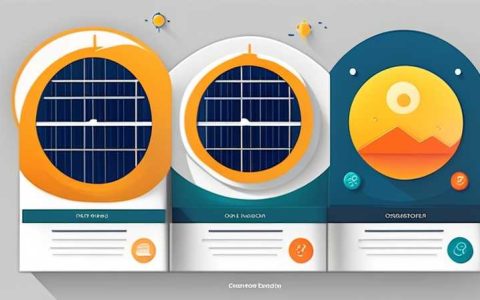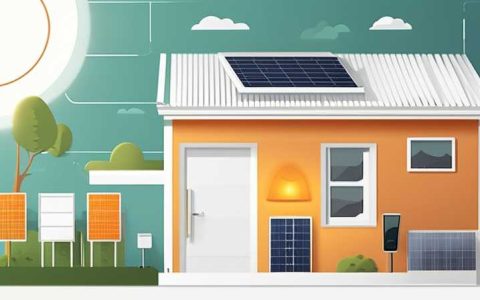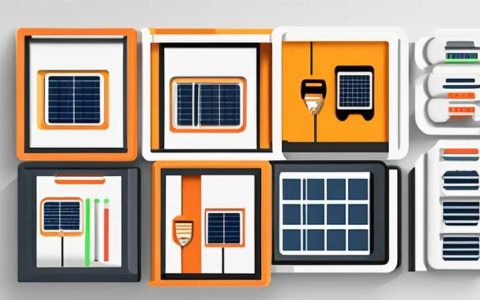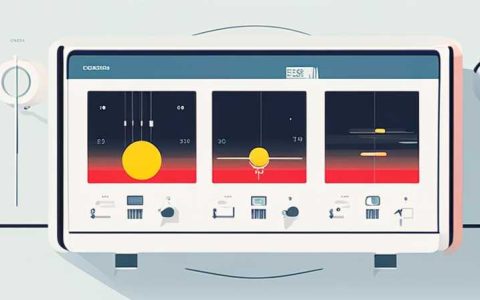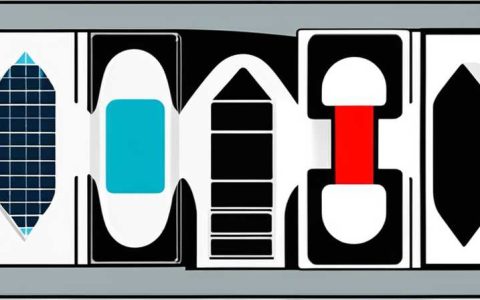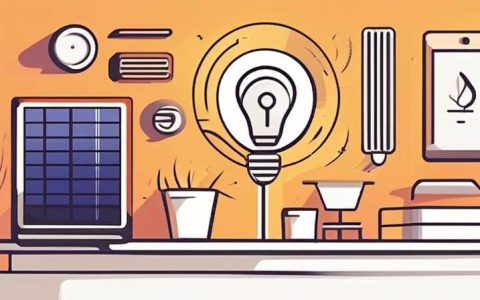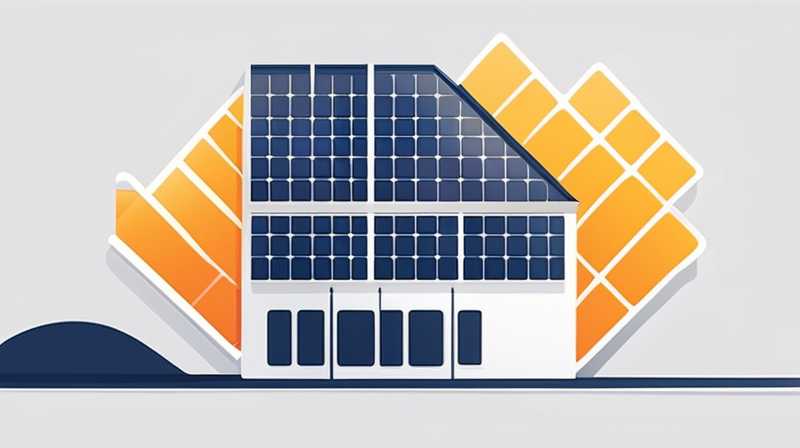
To maintain the efficiency and longevity of small solar panels, proper cleaning is essential. 1. Regular cleaning helps maximize energy output, as dust and debris can significantly reduce efficiency. 2. Calibrate cleaning frequency with environmental factors, such as local weather conditions and geographic location. 3. Choose appropriate cleaning materials, as abrasive substances can damage the panel surface. 4. Implement safe cleaning techniques, including the use of non-slip platforms and stable ladders. In detail, regular cleaning is vital because solar panels work by absorbing sunlight, and any obstruction can cast a shadow, diminishing the energy harnessed. Therefore, a strategic approach tailored to specific panels and their surroundings will ensure their optimal performance and extend their operational lifespan.
1. UNDERSTANDING THE IMPORTANCE OF CLEANING SOLAR PANELS
The functionality of solar panels is contingent upon their ability to harness sunlight effectively. Dust, dirt, and debris can impede this capability. As solar energy systems become increasingly common in residential and commercial settings, understanding the significance of their maintenance is paramount. Regularly cleaning solar panels not only improves energy efficiency but also enhances the longevity of the units. Over time, neglecting this responsibility may lead to diminished performance, which could translate to decreased energy savings and potential financial loss for the owner.
In regions with heavy rainfall, natural washing may occur; however, during dry spells or locations with particularly dusty environments, proactive measures must be taken. The environmental factors play a crucial role in determining the frequency of solar panel cleaning. For example, homes situated in arid regions or areas with significant industrial activity can accumulate dirt faster than those in more temperate locations. Understanding how these factors interplay will aid in establishing a suitable cleaning schedule relevant to specific circumstances.
2. DETERMINING CLEANING FREQUENCY BASED ON ENVIRONMENT
Establishing an effective cleaning regimen begins with evaluating local environmental conditions. Climate and geographical features heavily influence how often solar panels need attention. For instance, in desert areas with high winds and particulate matter, panels may require monthly cleanings to ensure optimal performance. In contrast, tropical regions may experience frequent rain, which can naturally wash panels and potentially reduce maintenance needs considerably.
Additionally, proximity to vegetation should be considered. Homes or businesses near trees may frequently find their solar installations covered in sap, leaves, or pollen, calling for more regular cleaning efforts. To maintain a responsible cleaning schedule, property owners should assess their unique environmental features. Keeping a log of performance metrics could help in understanding how environmental changes affect output, thus refining the cleaning schedule based on performance data.
3. SELECTING APPROPRIATE CLEANING MATERIALS
Choosing the correct cleaning materials is essential in ensuring the protection of solar panels. Using abrasive and harsh chemicals could lead to micro-scratches that diminish efficiency over time. Ideally, opt for soft sponges or microfiber cloths that gently lift dirt without causing damage. Additionally, cleaning solutions should be diluted and designed explicitly for solar panels to avoid any adverse chemical reactions.
Water is one of the best and simplest cleaning agents available. Soft water is recommended, especially in areas with hard water that may leave mineral deposits. Employing a hose for rinsing is effective for standard dirt, while stubborn grime might require pre-soaking with proper cleaners. This approach not only helps remove debris but also minimizes any risk to the panel surface. Maintaining the integrity of the solar panels is paramount to ensuring their long-lasting performance.
4. IMPLEMENTING SAFE CLEANING TECHNIQUES
Safety precautions during the cleaning of solar panels cannot be overlooked. Employing non-slip platforms or stable ladders can drastically reduce the risk of accidents. When accessing panels mounted on rooftops, it’s vital to ensure proper safety equipment is utilized, including harnesses if necessary. Additionally, considering weather conditions before embarking on cleaning is essential to avoid unnecessary hazards inherent in wet or windy environments.
When cleaning is underway, beginning with a rinse using water helps alleviate excessive grime before scrubbing. Adopting an approach from the top to the bottom ensures any excess cleaning solution doesn’t run down to panel sections already cleaned. This technique will result in a smoother and more efficient cleaning process, enhancing overall cleanliness and performance.
5. ENCOURAGING PROFESSIONAL CLEANING SERVICES
While many residential owners prefer DIY methods, there are benefits to employing professional cleaning services for solar panels. Professionals possess the experience and knowledge required for effective cleaning and maintenance. They are equipped with the right tools and adhere to safe practices that might not be available to average homeowners. Furthermore, hiring experts also allows property owners to save time and reduce physical risk associated with cleaning heights.
Professional services frequently utilize specialized equipment designed to clean solar panels without abrasive techniques. They may also perform additional evaluations during cleaning, assessing issues such as panel alignment or detecting potential malfunctions. This can lead to early interventions, ultimately prolonging the lifespan of the solar energy system.
6. MONITORING PANEL PERFORMANCE POST-CLEANING
After executing a thorough cleaning of solar panels, monitoring their performance is integral to ascertaining the success of the cleaning effort. Generally, productivity levels before and after cleaning should indicate discernible improvement. Tracking energy output daily or weekly can reveal trends that support the continued cleaning schedule.
In the event of unexpected performance drops after cleaning, an assessment concerning potential damage or mishandling may be warranted. Utilizing a monitoring system that checks energy production can significantly assist owners in recognizing performance fluctuations and adjusting maintenance as needed. This ongoing evaluation serves as a proactive measure in maintaining the panels’ efficiency for years to come.
FAQs
HOW OFTEN SHOULD SMALL SOLAR PANELS BE CLEANED?
The frequency of cleaning small solar panels depends heavily on environmental conditions. In areas where dust and debris accumulate quickly, cleaning may be advised every month. Conversely, if panels experience significant natural washing through rain, bi-annual cleaning could suffice. A practical approach includes assessing the panels’ performance over time; if energy output shows signs of decline, it may be indicative of a need for cleaning regardless of the typical schedule. Additionally, consider influences like proximity to vegetation or industrial areas, which may necessitate adjusting cleaning habits.
CAN I USE SOAP TO CLEAN MY SOLAR PANELS?
Yes, using mild soap alongside water is generally regarded as safe for cleaning solar panels. However, it is crucial to avoid harsh chemicals, as they may contain abrasive properties or materials that could damage the panel’s surface. A gentle cleansing solution that is specifically formulated for solar panels will ensure effectiveness without the risk of deleterious effects. Ensuring to rinse thoroughly post-application is also important to prevent residue accumulation.
IS IT SAFE TO CLEAN SOLAR PANELS MYSELF?
Cleaning solar panels can be safely accomplished by homeowners as long as proper precautions are taken. Employing non-slip ladders or platforms, using soft cleaning materials, and working in favorable weather conditions significantly minimize risks. However, for those uncomfortable with heights or physically demanding tasks, engaging professional cleaning services remains a prudent option. A professional will not only ensure safety but also enhance the effectiveness of the cleaning process by employing specialized equipment.
Maintaining the efficiency and performance of small solar panels is essential, necessitating a comprehensive approach to cleaning. Regular care and appropriate maintenance techniques will undoubtedly enhance the productivity of the solar energy system. Assessing environmental factors and monitoring panel performance post-cleaning will ensure panels operate at peak productivity. Educating oneself on the vital importance of these routines will also support well-informed decisions regarding cleaning schedules and methods. Being mindful of both cleaning materials and safety precautions will further bolster panel longevity. In summary, understanding how to clean solar panels effectively will provide property owners with the knowledge needed to maximize their investment in renewable energy sources.
Original article by NenPower, If reposted, please credit the source: https://nenpower.com/blog/how-to-clean-small-solar-panels-2/



